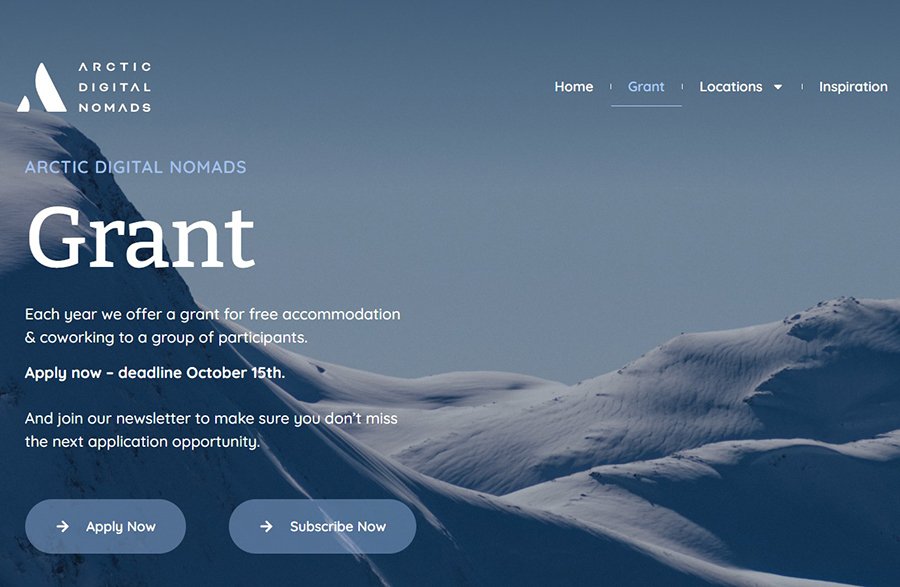Freelancers Are Offered Jobs and Housing in Northern Europe

The Arctic Digital Nomads program offers freelancers and remote professionals the chance to live and work in sparsely populated northern villages. The project aims to revive local communities and reduce population outflow from peripheral regions of Norway, Iceland, and the Faroe Islands.
The initiative combines the idea of digital nomadism with sustainable development. Local administrations seek to bring life back to depopulating settlements by providing specialists with new working conditions. Housing, coworking spaces, and internet access are provided free of charge under a grant program, while participants are required to engage actively in community life — hosting workshops, helping organize events, or sharing professional expertise.
The program was first launched in Norway — the villages of Geiranger, Norddal, and Eidsdal invited the first nomads in 2024. Located along the UNESCO-listed Geirangerfjord, these communities hosted about 15 participants — from IT specialists to illustrators and designers. Some stayed longer than the grant period, considering permanent relocation. For the new season, the same conditions apply, but with expanded integration programs: coworking spaces, local initiatives, and cultural exchanges with residents.
On the Faroe Islands, digital nomads are welcomed in the municipality of Vágur. Local authorities provide housing and office space and help participants integrate into the life of the small coastal town. Officials hope that the arrival of professionals will inspire new projects in tourism, arts, and education and raise the region’s visibility beyond Scandinavia. The local administration emphasizes that the goal is not a temporary influx of people but lasting connections between newcomers and permanent residents.
In Iceland, the project operates in the Westfjords region. A coworking hub called Blábankinn in the village of Þingeyri serves as one of the few workspaces in northwestern Iceland. Here, high-speed internet meets remoteness and harsh weather: winter storms and polar nights become part of everyday life. Organizers believe that these conditions help participants “disconnect from the noise” and focus on their ideas. Participants also take part in local events such as exhibitions, lectures, and seasonal festivals.
Arctic Digital Nomads focuses not only on tourism but also on sustainable presence. Unlike short-term programs, the goal is to create a balance between the interests of newcomers and the needs of local residents. Authorities aim to avoid the effect of a “temporary invasion” typical for popular destinations and make the arrival of nomads a development tool rather than entertainment. Participants are expected not just to be present but to make a real contribution to the cultural and professional life of the village.
The initiative’s partner is the European project EDIN (Empowering Digital Innovators in Northern Communities), which helps coordinate work with regions and finance infrastructure. This forms a network of northern settlements ready to receive remote professionals – with reliable connectivity, public spaces, and local coworking hubs. EDIN also facilitates the exchange of experience between municipalities participating in the program to create unified standards for hosting digital nomads and developing small communities.
Among the challenges are the harsh climate, limited logistics, difficult winters, and high delivery costs. However, the initiators are confident that new forms of mobility can compensate for these factors. The opportunity to work for global companies from fjords and islands makes the North competitive even without large cities and developed labor markets.
Applications for participation in the new cycle of the program are open from October 1 to 15, 2025. The selection results will be announced by November 1, after which the finalists will be able to start preparing for relocation. The grant residence period is scheduled for January 15 – April 30, 2026, with possible extensions until May in some regions. Participation is completely free: organizers cover housing costs and provide workspaces with internet access.
Similar programs are becoming increasingly popular in other countries as well. Governments and regions actively use grants, visa incentives, and infrastructure projects to attract remote professionals to sparsely populated territories. For example, in Spain, in 2025, the initiative Live in Ambroz Valley was launched to attract freelancers and young professionals to the Extremadura region. Participants are offered grants of up to €15,000 on the condition of relocation for at least two years. The program targets people working remotely and aims to revitalize the rural economy through the development of creative and technological professions.
In the USA, one of the most successful examples is the Ascend West Virginia program, which pays participants $12,000, provides housing and leisure vouchers, and grants access to a coworking network in small towns. According to organizers, about 96% of participants remain in the region for more than one year, confirming the effectiveness of such measures.
In Portugal, the first digital nomad village appeared in 2021, and by 2025 the Madeira Digital Nomad Village project expanded, covering other islands of the archipelago. It combines comfortable working conditions with programs for integration into the local community – from joint events to language courses and cultural initiatives. Such programs form not just a new geography of residence but a sustainable infrastructure of modern labor – coworking spaces, fast internet, and integration initiatives make remote regions part of the global digital economy.








